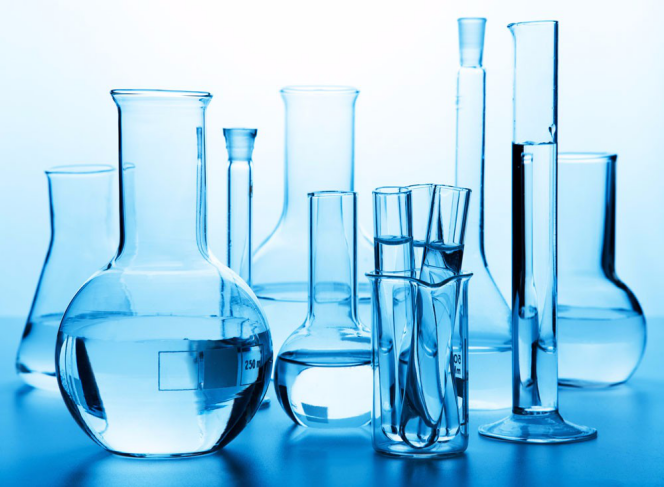Postpartum depression is a part of pregnant women susceptible to the disease, then, what causes pregnant women postpartum depression? Postpartum depression significantly affects the physical and mental health of pregnant women, and can also cause other problems. Therefore, when postpartum depression occurs, you need to immediately consult a doctor for treatment. Let pregnant women return to health as soon as possible. Let's take a look at the five major causes of postpartum depression in pregnant women.
Hormonal factors
In the process of pregnancy and childbirth, the endocrine environment will undergo great changes. Especially within 24 hours after delivery, the rapid change of hormone levels in the body is the biological basis for the occurrence of postpartum depression. The level of estrogen and progesterone gradually increased to the peak during pregnancy and gradually decreased to the basic level within 3 to 5 days after delivery. Research shows that the greater the decline in progesterone levels, the greater the likelihood of postpartum depression. The study found that the release of placental steroids before delivery reached the highest value, the patient showed a pleasant mood, the patient showed depression when the placental steroid secretion suddenly decreased after delivery.
Somatic factors
Obstetric and postpartum complications, dystocia, delayed labor, and surgical labor are factors that cannot be ignored in postpartum depression. Due to the pain and discomfort caused by childbirth, the mother and child feel nervous and fear, and when the childbirth and dystocia occur, the psychological preparation of the mother is insufficient, the degree of nervousness and fear increases, and the duration of labor is longer, resulting in increased physical and psychological stress. Inducing postpartum depression. Second, postpartum depression in women with physical illness or disability, especially infection and fever, has a certain effect on the promotion of postpartum depression.
genetic factors
Genetic factors are potential factors for mental disorders. A family history of mental illness, especially those with a family history of depression, has a high incidence of postpartum depression. In addition, past history of affective disorders, history of premenstrual depression, and the like can all cause postpartum depression. Women who suffer from postpartum depression have a higher rate of recurrence if they are pregnant and give birth again, and the rate may be as high as 50%. Women who have had major depression at any time in the past may increase the risk of post-production depression by 30%. ~40%.
social factors
The support system is considered to be an important factor. It includes the support of husbands and family members and their own satisfaction with marriage. In postpartum depression patients, there are many factors such as unfavorable support system, unsatisfied husband and wife relationship, less concern for postpartum relatives, and poor living conditions, which are all risk factors for postpartum depression. Poor birth outcomes, such as stillbirths, stillbirths, deformed children, and maternal families' aversion to baby gender, are predisposing factors for postpartum depression. The negative life events of maternal experience, such as unemployment, separation of spouses, family members and family members, family disharmony, etc., are important incentives to promote postpartum depression. At the same time, young people, single parents, low social status, mothers with multiple children, early divorced parents, low education, low income, new immigrants and other factors can increase the susceptibility of postpartum depression. In addition, postpartum depression is also related to maternal age, occupation, the quality of maternal health care services, postpartum breastfeeding, and unfortunate events experienced during maternal growth.
Psychological factors
Postpartum depression is more common in people with self-centeredness, lack of maturity, sensitivity, emotional instability, good fortitude, obstinacy, poor social skills, and disharmony and introversion. Prenatal mood instability, premenstrual tension syndrome, and post-production depression are more common. In the puerperal period, women’s emotions are in a fragile stage, especially in the first week after delivery, and the mood is in a state of serious instability. Due to the maternal's inability to adapt to the role of the mother, psychological stress causes depression and anxiety. Maternal hyper-anxiety and depression can lead to a series of physiological and pathological reactions, such as reduced secretion of norepinephrine and other endocrine hormones, can cause weakened uterine contractions, pain sensitive, prolonged labor, increased bleeding, further aggravate maternal Anxiety and anxiety are the triggers of postpartum depression.
Ibrutinib is a small molecule drug that binds permanently to a protein, Bruton's tyrosine kinase (BTK) that is important in B cells; the drug is used to treat B cell cancers like mantle cell lymphoma, chronic lymphocytic leukemia, and Waldenstrom's macroglobulinemia, a form of non-Hodgkin's lymphoma.
Ibrutinib is used to treat chronic lymphocytic leukemia, Waldenstrom's macroglobulinemia, and as a second-line treatment for mantle cell lymphoma, and marginal zone lymphoma.
We produce a series of complete intermediates for Ibrutinib, intermediate I (CAS No. 330786-24-8) and intermediate II (CAS No. 143900-44-1) etc.
All of our products are with stable production and strict quality control, making sure your experience with Sunshine Biotech is always enriching, satisfying and fulfilling.

Ibrutinib Intermediates,Cas 330786-24-8,Cas 143900-44-1,High Purity Ibrutinib Intermediates
Nanjing Sunshine Biotech Co., Ltd , https://www.sunshine-bio.com